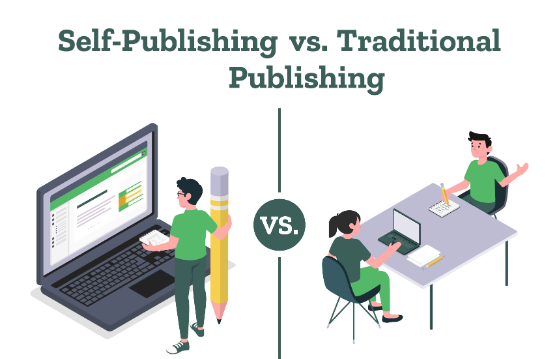Think You NEED a Traditional Publisher?

I don't often weigh in when my client ask me if they should try to be traditionally published, That's not for me to say, to be honest. Each author needs to decide what's right for them. But what I do like to specify is that there is nothing bad or even less about deciding to publish your own books. There are three very specific reasons for this.

Reason 1: Your Publisher Calls the Shots. Not You.
New authors tend to focus on the hard work of getting an agent and then getting signed to a publisher. But what comes after that? When you sign to a publisher, that means you are signing over the rights to your book, usually US or worldwide English language rights. That means for every edition of your book that appears in English, your publisher makes the decisions. The cover, what genre it falls under, how long it will be. And… if you sign a multi-book deal, they can basically dictate what goes into your subsequent books. For fiction authors, this means them choosing what novel you write next. And for nonfiction authors, this means censoring views in your book your 22-year-old editor friends “problematic.” Keep this lack of control in mind when choosing a publication path.
Thanks for reading Kristin McTiernan! Subscribe for free to receive new posts and support my work.

Reason 2: It Can Take a Long Time
For those authors whose career relies on working with a traditional publisher, they have to spend years querying agents, and then the agents have to pitch publishing houses. And you are not the agent’s only client (usually). This means your completed book is just sitting on your hard drive. No one is reading it. You are certainly not earning any money on it. And you may not be sure you ever will. This can be agonizing and, for nonfiction authors in particular, you might miss your shot if the issue you’re writing about ceases to be a “hot topic.”
Reason 3: There Are Scams
Allow me to retail you with the tragedy of Sage and Sparrow Publishing, a small publisher who, in the course of one day, signed an author, ditched an author, got dragged on Twitter for it, fought back on Twitter, and ceased to exist on social media.

After other authors piled onto the small publishing house, they nuked all their social media accounts and haven’t been heard from since. In looking at the screenshots, it was hard to believe my eyes. They hardly seem professional do they? Well, there’s a reason for that. A commenter on the Writer Beware Forum did some digging on the owners of this small press, Elle Mackenzie and Nick Starling. The results were less than encouraging.
I searched Amazon and found a single short story by Mackenzie, published in 2020, which appears to be self-published (the author is also credited with the cover design). I couldn't find any books/stories by Nick Starling, although apparently, he self-published successfully under a different name… Based on their bios, which I found in the complaining author's Twitter feed, neither principal has trade publishing experience or education.
Since both principals appear to reside in Arizona, and since the Twitter account also shows an Arizona base, I searched the Arizona corporate records for Sage & Sparrow Publishing. I could not find a listing, which either means they're incorporated elsewhere, or not incorporated at all. 😬
Regardless, they appear to have signed a number of hopeful authors. All I can say is that I hope their contracts contain a solid rights reversion clause.
The author spend years trying to get signed to a publishing house, and then when she did, the publisher in question gave her the brush-off and tried to say they never signed her in the first place. Which means she has to start from square one. I can’t imagine how hard that must be for her.
Obviously, not all small publishers are so woefully incompetent, but don’t think that being traditionally published insulates you from scams, bad actors, and low earnings on your books.
